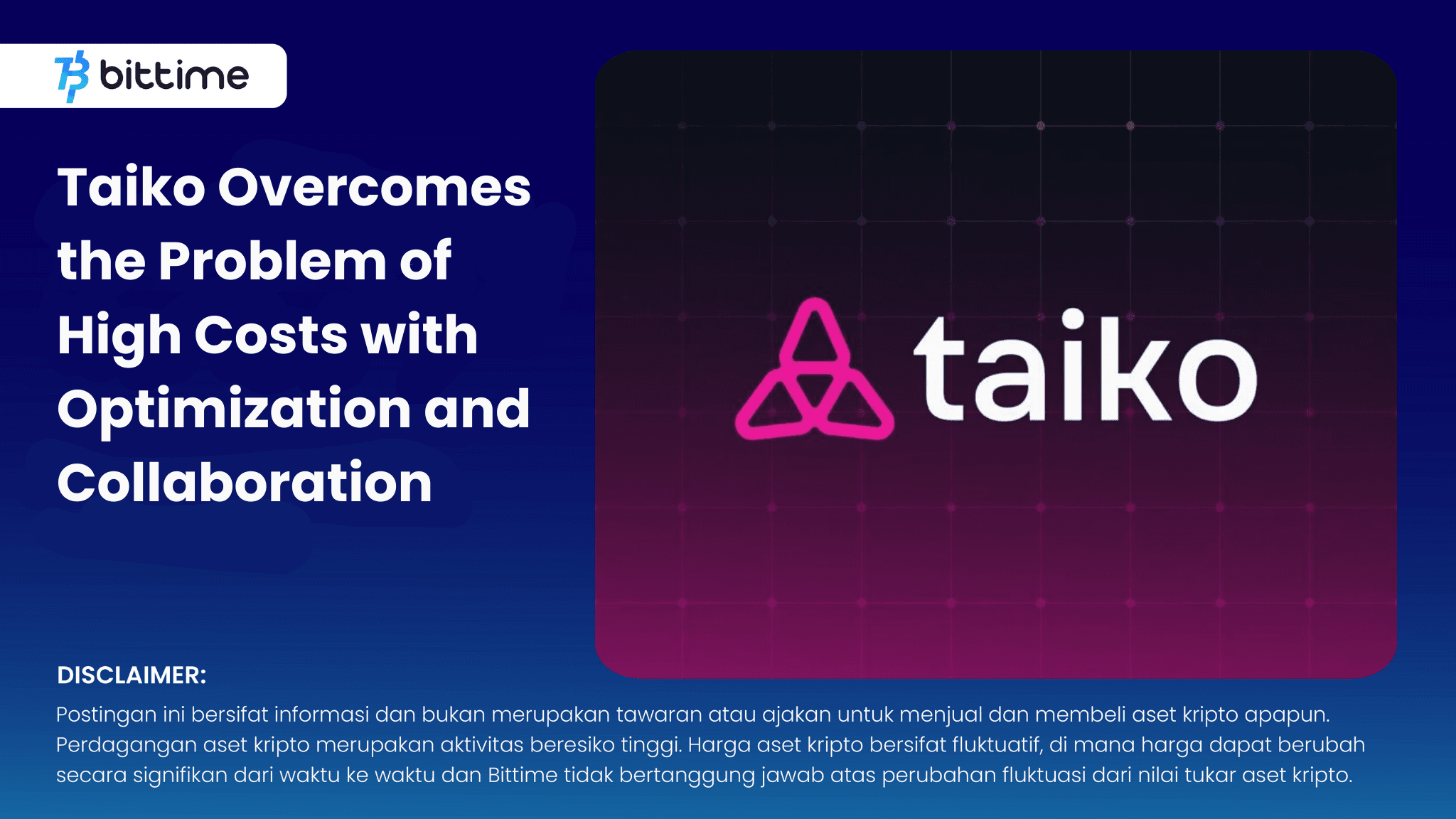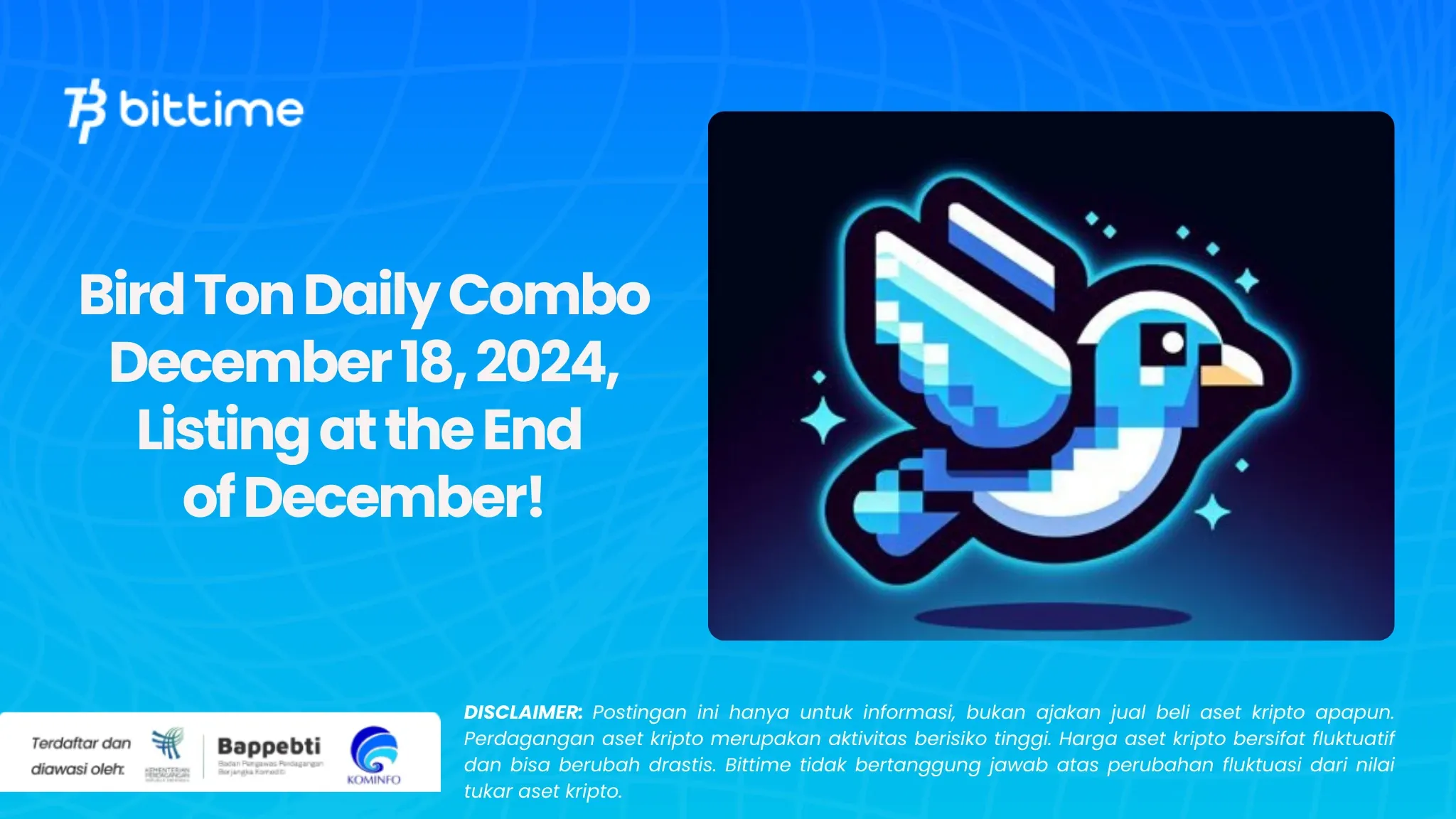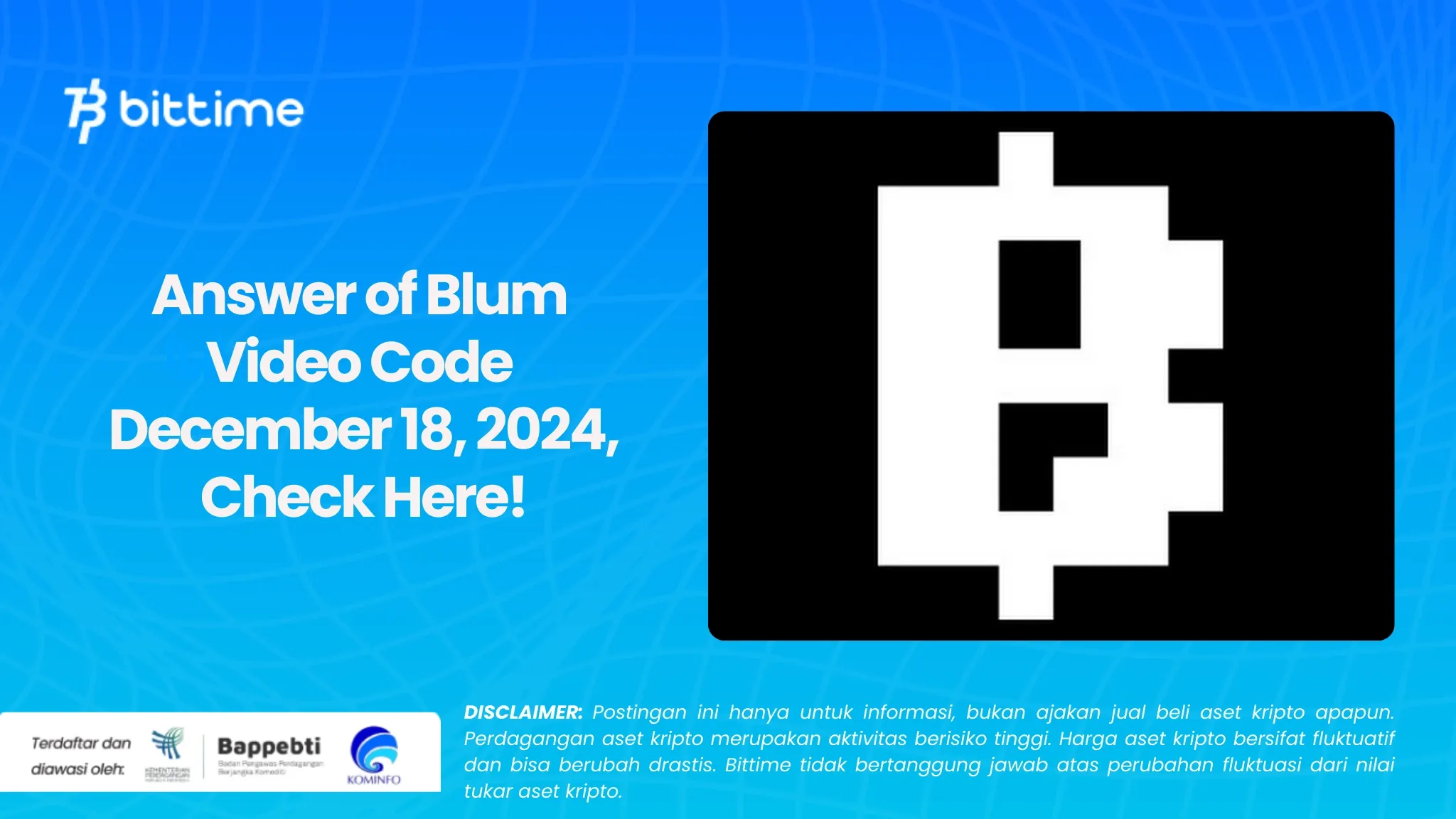Taiko Overcomes the Problem of High Costs with Optimization and Collaboration
2024-06-09
Bittime - Taiko Protocol has responded to community concerns about the protocol's higher fees compared to other L2 networks. The following is a detailed discussion.
High Cost Factor according to Taiko
Through a post on Twitter, Taiko explained that the higher costs were caused by several factors:
1. Protocol Complexity
Taiko Protocol involves more complex logic and storage compared to other L2 protocols.
2. Use of Proxies
The use of multiple upgradeable proxies in the Taiko protocol increases the cost of delegate calls.
3. Blockchain Interaction
In contrast to other L2 protocols, Taiko does not group or verify blocks in batches. This leads to more frequent interactions with the Ethereum blockchain, increasing costs to ensure network liveliness and security.
4. Data Storage
Currently, the circular buffer on the Taiko blockchain is not yet completely filled, resulting in higher data storage costs.
Steps Taiko Takes to Lower Costs
Taiko assured the community that they are committed to resolving this cost issue within the next 40-60 days.
Some of the steps Taiko will take include:
- Cost Optimization: Taiko will continue to optimize the protocol code to reduce costs.
- Open Collaboration: Taiko invites the community to help improve the code and optimize the protocol.
- Program Trailblazers: Taiko will launch a Trailblazers program to provide incentives to block bidders to help increase efficiency and reduce costs.
Notes from Taiko
Although Taiko's fees are currently higher compared to some other L2 protocols, Taiko emphasizes that:
- Decentralization and Permissions: Taiko's advantage lies in its decentralization and permissionless nature, which provides the benefits of higher security and resilience.
- Rollup Solution: Taiko's Rollup solution is still profitable for block bidders and validators, especially when L2 transaction volume increases.
Taiko is committed to providing secure, efficient, and affordable scaling solutions for Ethereum users.
With continued optimization, community collaboration, and the Trailblazers program, Taiko is expected to overcome cost issues and increase adoption of its protocol in the future.
It is important to remember that investing in cryptocurrencies is high risk and investors should do their own research before making any investment decisions.
The Future of Ethereum Scaling
The fee issues facing Taiko Protocol highlight the main challenge facing Ethereum today: scalability.
1. Rollup
Rollup is one of the popular Layer 2 scaling solutions for Ethereum. Rollups process transactions outside the Ethereum main chain, then prove their validity on the main chain. This can increase transaction throughput and reduce fees.
2. Other Solutions
In addition to Rollup, there are several other scaling solutions under development, such as Plasma and Optimistic Rollup. Each solution has its own advantages and disadvantages.
Challenges and Considerations
While Rollups offer the potential for increased scalability, there are several challenges that need to be overcome:
- Complexity: Rollups can be more complex to implement and use compared to existing Layer 1 solutions.
- Decentralization: Some Rollups may require a certain degree of centralization to ensure security and efficiency.
- Interoperability: Compatibility between different Rollups and other blockchains is still a challenge.
Towards Optimal Scalability Solutions
There is no single perfect solution to Ethereum's scalability problem. The choice of the best solution will depend on factors such as:
1. User Needs
Various users may have different needs. Gamers may prioritize transaction speed, while DeFi investors may place more importance on security and decentralization.
2. Adoption and Ecosystem
Solutions that are easier to adopt and have a strong ecosystem are more likely to be successful.
3. Security and Decentralization
An optimal solution should be able to handle increased scalability without compromising the security and decentralization of the Ethereum network.
Conclusion
Taiko Protocol is one of many projects that are working to solve Ethereum's scalability problem.
Although Taiko faces current cost challenges, their commitment to decentralization and cost optimization is commendable.
Together with other scaling solutions, Taiko can contribute to a more scalable, secure and decentralized future for Ethereum.
Investors and users need to stay abreast of the latest developments in the Ethereum scaling space and consider relevant factors before choosing a solution that suits their needs.
How to Buy Crypto on Bittime
You can buy and sell crypto assets in an easy and safe way via over. Bittime is one of the best crypto applications in Indonesia which is officially registered with Bappebti.
To be able to buy crypto assets at over, make sure you have registered and completed identity verification. Apart from that, also make sure that you have sufficient balance by depositing some funds into your wallet.
For your information, the minimum purchase of assets on Bittime is IDR 10,000. After that, you can purchase crypto assets in the application.
Study Complete Guide How to Buy Crypto on Bittime.
Monitor graphic movement Bitcoin (BTC), Ethereum (ETH), Solana (SOL) and other cryptos to find out today's crypto market trends in real-time on Bittime.
Disclaimer: The views expressed belong exclusively to the author and do not reflect the views of this platform. This platform and its affiliates disclaim any responsibility for the accuracy or suitability of the information provided. It is for informational purposes only and not intended as financial or investment advice.


